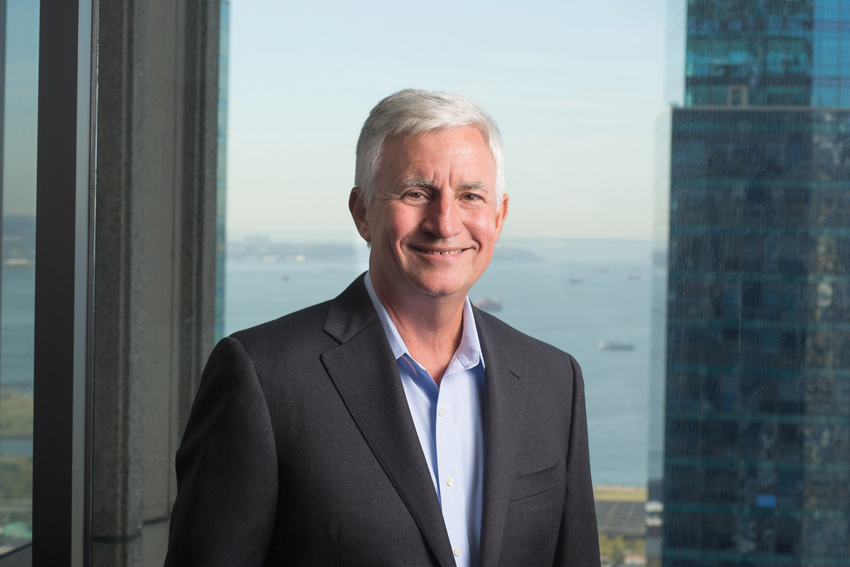
COVID-19 is causing unprecedented upheaval in the travel industry. In particular, business travel has seen a steep decline driven by lockdown constraints and the emergence of collaboration platforms reducing the need for face-to-face meetings. Doug Anderson led the two leading players in the industry for over 12 years, growing revenues by nearly 2x on the same headcount base through technology and transformation.
Humatica, the leading specialist advisor to private equity on organizational effectiveness topics, interviewed Doug on his perspectives on market shifts, productivity improvement and organizational transformation in the industry.
Humatica: What is your prognosis for the development of the travel management industry going forward post COVID-19?
Doug Anderson: I don’t think any of us have seen anything like the effect of COVID-19 on the travel industry before. Business travel will come back to levels of approximately where it was, and will continue to grow, but the rate of growth will not be as strong as pre-crisis.The major economies have to reach a point of equilibrium where governments need agree common ways of entering and exiting international borders. When we get safety measures including distancing, cleaning and air filtering, I think domestic travel will start to build again. Business travel will pick-up more slowly. It’s probably 12 to 18 months before we see business travel return to 75-80% of what it was before the pandemic. I don’t think the world has changed, business travel has just been temporarily interrupted.
Also, as business travel starts to pick up again, companies will become more focused on the safety and well-being of their employee travelers. There’s always been a duty of care requirement. But it was more about hurricanes or other incidents. Now companies will want to know the standard of the travel supplier’s infrastructure and plans around keeping their facilities safe for their travelers.
Humatica: What are the key trends currently impacting the business travel industry?
Doug Anderson: Digitalization of everything is the big trend in the industry over the last 20 years. When I joined the travel sector in 2007, around 15% of transactions originated on digital devices. When I left 12 years later, 65% of transactions originated on a digital device. I believe this will go up to 80-85% and potentially even higher long-term. There will still be complicated multi-leg, multi-carrier transactions that will originate on the phone and have to be handled manually. But I think digitalization will continue to take more transactions. The increase was about half a percent a year in the earlier years and increased to 1.5-2% per year after 2008. It’snot slowing down.
Real-time communication: The second trend is real-time communication of travel information throughout the journey. It used to be that every traveler got every alert. They had to figure out which ones pertained to them and which ones did not. Now the industry has evolved to the point where when travelers are on the road and their flight is delayed, or there is another issue, they find out about it in near real time -supplemented with alternatives. Imagine, your flight from New York to Chicago is delayed. The system puts you on the next flight, or a different airline, or on the last flight of the day. If your flight is the next day at 6:30 am, it’s booking a hotel right across the street from the airport. The technology is keeping travelers efficient and well informed.
Journey Integration: Another trend is to deliver all the things that aren’t just transportation and hotels to the traveler. The journey starts at the traveler’s front door and ends at that same front door. Much of what the traveler does in-between is currently managed in a bespoke way. Bringing all of the other relevant “longtail services” into the travel experience is a fantastic new opportunity to better serve the traveler, to better distribute suppliers’ goods and services, and make the whole experience better. It starts with making the whole journey more seamless, less time consuming and cheaper.
Enabling Supplier Differentiation: Travel platforms have to better enable suppliers like hotels, airlines, rail carriers and car rental firms to differentiate their products and services. Airlines and hotels have invested billions in differentiating their products beyond price and schedules. If I want five inches more of legroom on a flight, I have no way of knowing this unless I go to each airline’s website, which takes time. In order to be able to offer differentiation at the supplier level, the travel management industry is working with the suppliers to offer more detailed information for greater traveler choice and supplier differentiation.
Humatica: What long-term impact will modern digital communications platforms have on business travel?
Doug Anderson: Even after the ‘08-09 push toward implementing telepresence and other collaboration platforms, a postmortem showed that travel spend continued to grow. The platforms enabled a lot more people to be involved in real time face-to-face communication than could be in the past. It was a great benefit for organizations in terms of the culture, and alignment around the strategy. But companies didn’t reduce their travel spend. We had thousands of employees that work from home. The advantages for them were obvious: they could get up and work in their pajamas if they wanted to, they could work three hours in the morning and four hours in the afternoon. The real advantage was flexibility. The challenge with remote working is to maintain cultural identity and linkage to the company.
Humatica: How are travel management companies and their organisations responding to these industry challenges?
Doug Anderson: When I joined Carlson Wagonlit in 2007 we had about 24,000 employees of which 17,000 were travel counselors, answering phones and supporting clients. We had 500 tech people at the time. When I left nine years later sales had grown by about 75%, but the firm still had 17,000 employees. There were 5,000 fewer travel counselors but five times as many tech people. The tech platform improved customer quality and transaction processing efficiency. As online transactions ramped up, artificial intelligence and robotics were introduced to handle exceptions and routine problems that come up. One of the challenges to creating a tech-enabled environment is finding the right people. Getting rid of the experienced analog resources and bringing in new people is one approach. But a more sustainable approach that is less expensive, quicker to realize, and certainly more staff friendly is to give people in the organization opportunities to do things they haven’t done before. This is the approach we took.
Humatica: How do you maintain high motivation and good customer service while driving productivityimprovement?
Doug Anderson: Attrition among travel counselors is high. So, most of the reduction in workforce that took place was managed through normal attrition. We weren’t asking an agent to book more transactions than they booked in the past. They were handling similar numbers of transactions or fewer, more complex transactions which they enjoyed more. When technology drives productivity improvement there’s an impact on the organization which must be managed and communicated well.
Humatica: What new competencies were needed for employees in the sector?
Doug Anderson: Many travel counselors had lots of experience and had been in their roles for 20 to 30 years. When I started, it would take six or eight weeks to train a newly minted travel counselor to book a transaction because the technology was so old. Evolving the platform into something more intuitive was a challenge. However, over time, training cycles were radically reduced. It’s much easier to bring people on. You still have experienced travel counselors, but they handle the more complicated transactions where they can utilize their experience and really delight customers. They love that.
Humatica: You had many remote workers, like those working from home today. How do you maintain cultural identity and a connection with the company for remote staff?
Doug Anderson: It was up to the team leader to decide what makes sense for their virtual organization. There has to be regular communication going out each morning with important information and recognizing informal events like birthdays. That’s important. There also needs to be a routine for group get-togethers, either virtually or in person on a periodic basis. People often like the flexibility and lifestyle aspects of working remotely but they also want to maintain a cultural link with their company and their colleagues.
Humatica: How did you shift skills and competencies?
Doug Anderson: The culture looked different in the end. We hired non-traditional, non-travel-technology senior executives. For example, we hired the head of NBC Universal distribution. He had no experience in managing business travel, but he knew a lot about distribution of content, which is a big part of what travel management is about. In another case, we hired the chief technical officer from Western Union who had managed their transition from analog to digital. These executives brought in other team members. We also acquired technology companies where we needed capabilities that could be acquired more efficiently than taking the time to build them.
Humatica: You worked with PE-governance for 13 years. What is the private equity sponsor’s role in facilitating the organization’s transformation?
Doug Anderson: I believe a good, healthy, open relationship between management and the private equity sponsor is important. We didn’t always agree on everything, but that’s fine. If two people always agree, then one of them is normally not necessary. The private equity sponsors also provided access to experienced professionals and experts in areas that we didn’t otherwise know, that helped us frame the issues and how we should address them.
Humatica: What are the interesting areas for future investment in the travel management industry?
Doug Anderson: There will be consolidation which will create buying opportunities. Those with access to capital are looking in all sectors for distressed businesses that can be acquired or rescued at the right price. There will be fewer suppliers in the future, and those that remain will be very careful in their capacity management. Small, local and medium-sized regional, even multi-regional travel agencies, will be looking for options to stay in business. Also, the technologies that enable supplier differentiation and the ability to deliver it, will become more valuable. There’s going to be an even more vigorous battle among suppliers for volume in an environment where supply is going to be ahead of demand for a while.
Humatica: What’s your advice to travel industry executives at this time of great change?
Doug Anderson: If you’ve got a highly seasoned long tenured workforce that works efficiently and they get away, then they’re gone. It’s therefore important to find ways to cut costs while retaining the people who are producing and delivering the service. It’s important to bring those people back when things pick-up, especially if long training cycles are needed. However, smart firms will use the crisis to address their organization. This is the right time to figure out how many layers you need and how you can work more efficiently when the market returns.
Doug Anderson, previous CEO of Carlson Wagonlit (CWT) and Amex Global Business Travel (AMEXGBT), the two leading corporate travel management companies (TMC). Interviewed by Andros Payne, Managing Partner of Humatica, in June 2020.

Resilience isn’t a buzzword anymore—it’s the make-or-break factor for portfolio companies navigating today’s volatility. That was the takeaway from the standout panel at the PE…
Read more
Rightsizing an organization is never easy. But, it is a normal process as firms adapt to changing market requirements. More recently, higher interest rates, AI…
Read more
The promise of AI and turbulence introduced by the Trump tariffs have renewed focus on rightsizing and efficiency improvement as levers for value creation and…
Read moreReceive our news and valuable perspectives on organizational effectiveness each month.